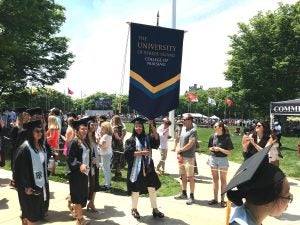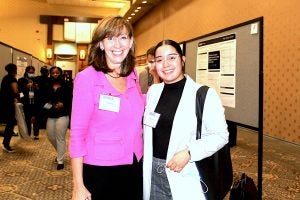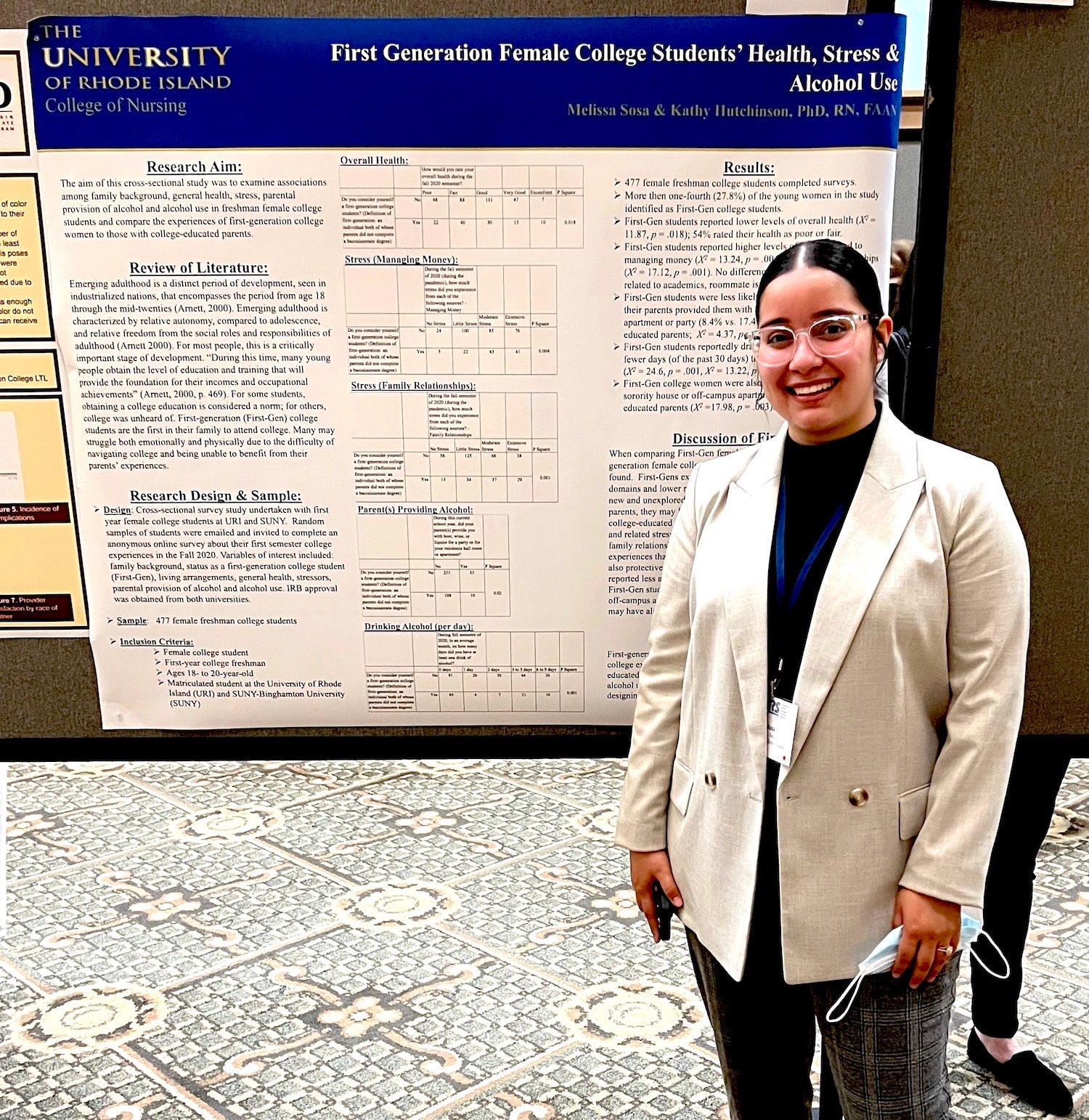Melissa Sosa, first generation American and college student, already employed in neuro ICU
In 2010, Melissa Sosa was a 10-year-old girl going to grade school in Providence, playing softball and volleyball with her friends, and just generally being a kid. Then her mother, Alba Vasquez, was diagnosed with stage 3 breast cancer. It was a monumental challenge for her mom and the entire family, but also was a source of inspiration that set Melissa on her current course.
“I didn’t really understand the process at all, and every time my mom would go in and have all these surgeries and chemo, I didn’t really understand what was happening. It was really scary for us,” Sosa said. “It wasn’t until a nurse sat down with me and my sister, who was five at the time, and really talked to us in simple terms so we could understand. It made me feel a lot more comfortable. It was from there that I decided what I wanted to do, the type of person I wanted to be. Since then, I knew I wanted to be a nurse.”

Sosa has now achieved that goal, crossing the stage at the University of Rhode Island College of Nursing commencement ceremony May 21. While she is only just beginning her career, she has already overcome significant obstacles to get to this point in her career and her life.
Sosa’s parents, born in Guatemala, immigrated to the United States looking to give their future children a better life. Despite the challenges of being a first-generation American and first-generation high school student, Sosa excelled in her studies while also pitching for the Central High School softball team, playing volleyball and throwing the hammer for the track and field team. She would go on to become valedictorian of her class.
“My parents came to this country from Guatemala to give my sister and me more chances that they themselves didn’t have,” Sosa said. “Guatemala is very hard; there’s very little opportunity. I thank my parents every day for coming here. My parents since they came here have always helped their family back in Guatemala, and I want to be able to help my parents and give back to them for everything they’ve done.”
While opportunities abound in the United States, great challenges often face a new American, especially from an ethnic minority, non-English speaking family. Sosa was unfamiliar with how the college application process works, and with how expensive college tuition can be. She worked through the challenge and in her high school senior year, she was accepted to multiple colleges in Rhode Island and Massachusetts. She chose URI largely due to the Talent Development program, which recruits and serves Rhode Island high school graduates with college potential who come from historically disadvantaged backgrounds, a majority of whom are scholars of color.

“Talent Development helped me a lot, not only financially, but also I got to really have a group of people I could tell my struggles to,” said Sosa, adding that the program’s summer classes for new students played a large role in her success at the university. “What closed the deal for me is Talent Development let me take summer courses before my first year, including Nursing 100. I got to experience college a little before I got into college.”
As Sosa was embarking on her college career, her mother’s health deteriorated further. During her first year at URI, her Mom was able to attend in-person at Edwards Auditorium as she received her white coat, marking the beginning of a nursing student’s career. Alba Vasquez sadly passed away soon after.
“Six weeks before she passed, I think she knew it was her time. She sat me down and said, ‘Listen, things are not going well; I’m not feeling too well. I’m going to need you to keep pushing. Your sister and your dad are here, and even if I might not be here, I’ll always be watching down. And I want you to know the day you cross that stage, I’ll be there,’” Sosa said. “And I think that’s what really drove me. I did this for my family, for her, and for myself.”
Sosa made the most of her experience at URI, excelling in her academics to the point she was named the College’s Academic Excellence Award winner for 2022. She also served as a College of Nursing ambassador, and took part in research studies even as an undergraduate student. Working with Associate Dean Kathy Hutchinson, Sosa studied female college students’ health, stress and alcohol use, particularly among first-generation college students.
“One of the findings that was prevalent is that managing money and family relationships is a very big stressor first-gen students deal with, which is something I dealt with myself,” said Sosa, who presented her study at the URI Honors Program and at the Eastern Nursing Research Society’s annual meeting in March. “My hypothesis was that stress leads to more alcohol use. In reality, first generation students are less likely to drink alcohol, mostly because they are too scared to veer off their path because it’s such a new experience, they want to do everything by the book. There was a huge difference between first generation college students and non-first-generation students in their alcohol use.”
Sosa’s dedication and hard work has already paid off with her first job before even leaving the Kingston campus. After passing the NCLEX nursing licensure exam, she will begin her nursing career in the neuro Intensive Care Unit at Rhode Island Hospital. Going forward, she plans to attend CRNA school to become a nurse anesthetist. Eventually, she plans to earn a Ph.D. and become a nursing professor, possibly one day teaching in a familiar location.
“I definitely want to teach. I want to come back and be a clinical instructor, for URI particularly,” Sosa said. “I think being first-gen and struggling like I did at the beginning, I now have all this knowledge I can share with others. I want to help as many people as I can because it’s hard; nursing school is hard, and I think I can help.”

